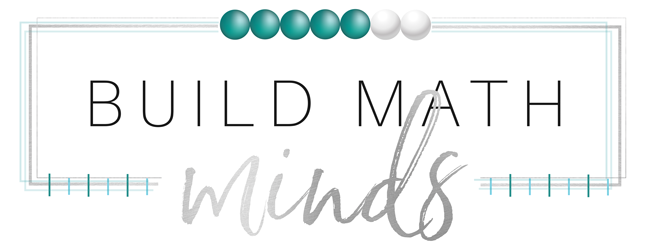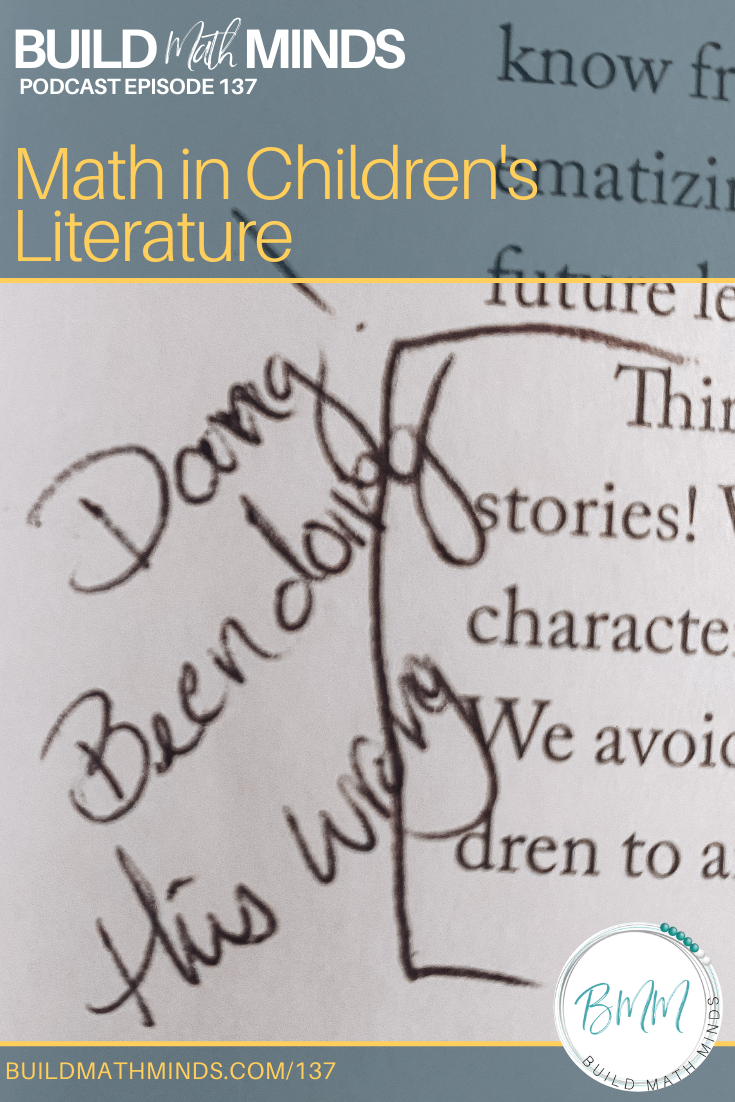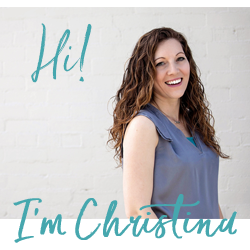Resources mentioned in this episode:
Mathematizing Children’s Literature: Sparking Connections, Joy, and Wonder Through Read-Alouds and Discussion by Allison Hintz and Anthony T. Smith.
Welcome fellow Recovering Traditionalists to Episode 137. Today let’s chat about Math in Children’s Literature.
As an educator, I want to be doing the ‘right thing’ for children. As a Recovering Traditionalist, I realize that I don’t know it all and I’m doing the best I can with the knowledge I have…until I learn a better way.
Stenhouse Publishers recently sent me a couple of their new math related books. I hadn’t had a chance to read them yet, but this week I finally cracked open the book Mathematizing Children’s Literature: Sparking Connections, Joy, and Wonder Through Read-Alouds and Discussion by Allison Hintz and Anthony T. Smith.
I haven’t even read the book yet, because in the very first page of the “Note to Readers” they wrote something that took me aback and made me want to share about this book without even having read it, because it was such a big thing that I was doing wrong.
I even wrote in the margins “Dang! Been doing this wrong” and as I tried to continue reading the book all I could think about was what I had just read and how much I wanted to share it with all of you.
So here it is:
“Third, we encourage you to delight in children’s literature and focus on enjoying the stories! We strive to keep our focus on enjoying and exploring the story, setting, plot and characters, to appreciate the story the author and illustrator have chosen to share with us. We avoid making read-aloud experiences oral quizzes with specific questions we ask children to answer; instead we notice and wonder, ask questions, and listen to children’s ideas.
As you experiment with approaching stories with a mathematical lens, we suggest you begin by inviting children to share what they notice, what they wonder, and what questions they have and follow their lead – placing the child in the center as the mathematician, rather than the teacher always setting the agenda and asking the questions. Think of the story context as a place to play and practice seeing math everywhere in our world, seeing math as a way to make sense of our world. Don’t feel pressure to find mathematics in the story, but rather explore as a curious mathematician who asks questions, notices, wonders, and joyfully plays. It can take time and practice to begin to think within a story as mathematicians and also to follow ideas brought up by children wherever they lead.”
Wow!
I can honestly say that I don’t think I have EVER done that.
I always use a children’s book with a preset mathematical agenda. I have the questions laid out that I wanted to ask the kids.
And so, even though I have not read this whole book, within the first few pages it has already helped me and the rest of the book I’m sure will be even more helpful. I can’t give much insight into what the book gives because I haven’t read it, so I’m going to share what is on the back of the book to see if you think the book will be helpful to you:
Inside Mathematizing Children’s Literature, you’ll learn how to do the following:
- Select picture books according to the goals of the read-aloud experience.
- Plan and facilitate three kinds of read-aloud discussions – Open Notice and Wonder, Math Lens, and Story Explore.
- Utilize Idea Investigations – experiences that invite students to pursue literacy and math-focused ideas beyond the pages of the read-aloud.
- Connect with students’ families and communities through stories.
So if you think this book sounds like something that can help you, I’ll have a link to it over at buildmathminds.com/137
Until next week, my fellow Recovering Traditionalists, keep Building Math Minds.
This episode is brought to you by the Build Math Minds professional development site. It’s an online site full of PD videos designed specifically for elementary teachers to help you build your math mind so you can build the math minds of your students. If you are interested in getting in-depth Math PD at Your Fingertips, become a member of Build Math Minds. Just go to buildmathminds.com/bmm and depending upon when you are listening to this, enrollment might be open or you can join the waitlist and get notified when it opens again.




